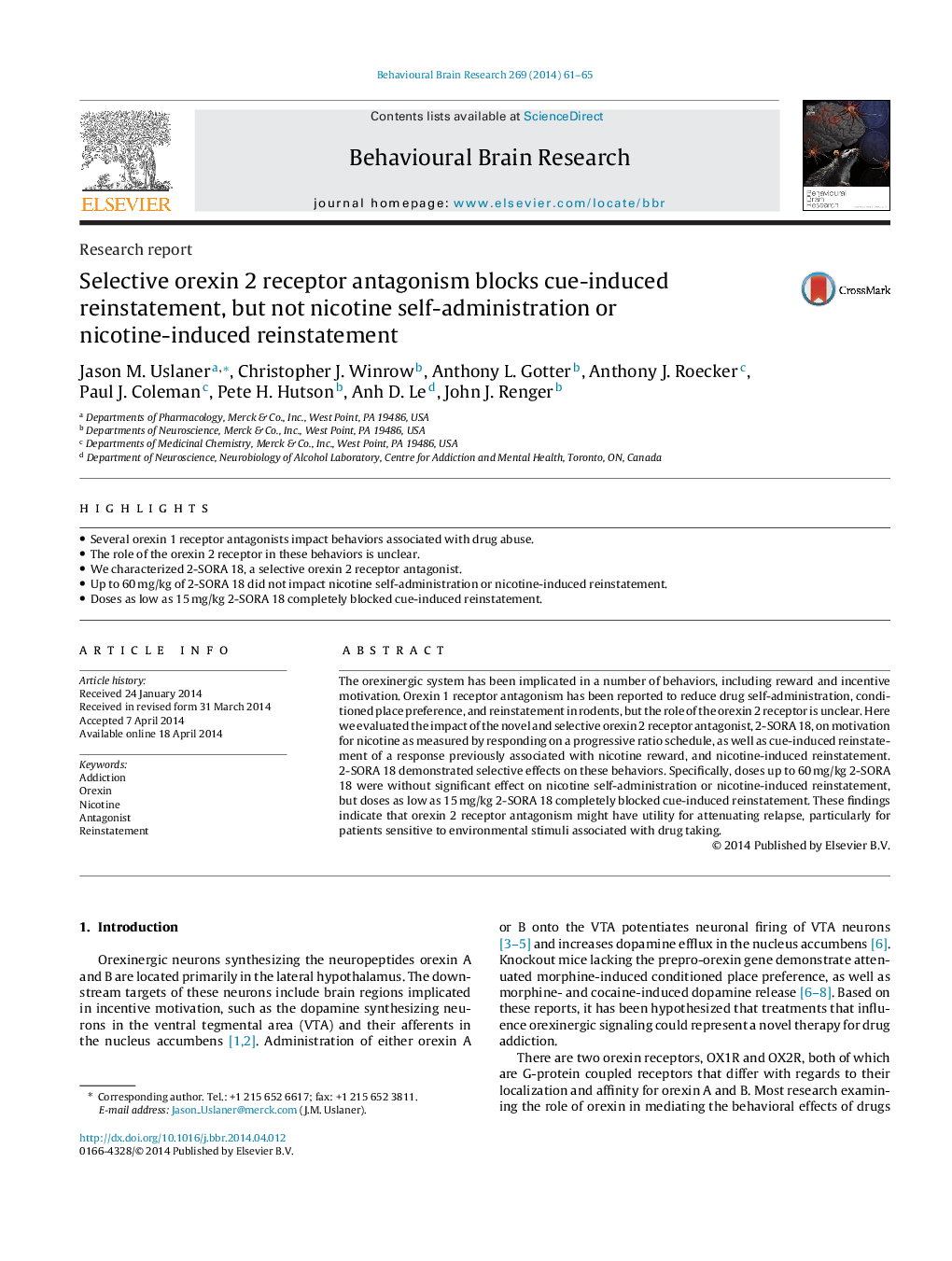| Article ID | Journal | Published Year | Pages | File Type |
|---|---|---|---|---|
| 6258028 | Behavioural Brain Research | 2014 | 5 Pages |
â¢Several orexin 1 receptor antagonists impact behaviors associated with drug abuse.â¢The role of the orexin 2 receptor in these behaviors is unclear.â¢We characterized 2-SORA 18, a selective orexin 2 receptor antagonist.â¢Up to 60 mg/kg of 2-SORA 18 did not impact nicotine self-administration or nicotine-induced reinstatement.â¢Doses as low as 15 mg/kg 2-SORA 18 completely blocked cue-induced reinstatement.
The orexinergic system has been implicated in a number of behaviors, including reward and incentive motivation. Orexin 1 receptor antagonism has been reported to reduce drug self-administration, conditioned place preference, and reinstatement in rodents, but the role of the orexin 2 receptor is unclear. Here we evaluated the impact of the novel and selective orexin 2 receptor antagonist, 2-SORA 18, on motivation for nicotine as measured by responding on a progressive ratio schedule, as well as cue-induced reinstatement of a response previously associated with nicotine reward, and nicotine-induced reinstatement. 2-SORA 18 demonstrated selective effects on these behaviors. Specifically, doses up to 60Â mg/kg 2-SORA 18 were without significant effect on nicotine self-administration or nicotine-induced reinstatement, but doses as low as 15Â mg/kg 2-SORA 18 completely blocked cue-induced reinstatement. These findings indicate that orexin 2 receptor antagonism might have utility for attenuating relapse, particularly for patients sensitive to environmental stimuli associated with drug taking.
